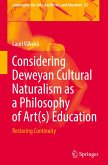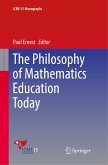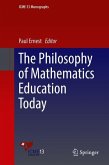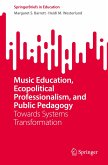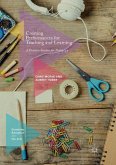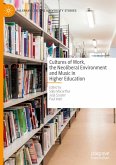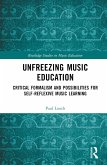This book makes a case for cultural naturalism as a basis for a philosophy of art education. It argues for a holistic approach that avoids hard boundaries between artistic disciplines in the educational context, applying cultural naturalism to challenges that are topical for the whole art(s) education field, including challenges related to ecology, social justice, and technological transformation of culture.
The book is written in the form of a conditional argument that considers the consequences of cultural naturalism for today's philosophical problem-solving in art(s) education. It contains a systematic and historical analysis of cultural naturalism that support the philosophical reflection of educators and other scholars operative in this field. The result is a late modern reading of Deweyan cultural naturalism that highlights the continuance of key philosophical ideas from the modern to present discourses. The key topics discussed are of particular interest topresent-day art(s) educators: ecological sustainability, social justice, and technological transformation of culture. In addition, this book provides an example of pragmatist argumentation, suggesting an alternative to analytical and post-philosophical approaches.
The book is written in the form of a conditional argument that considers the consequences of cultural naturalism for today's philosophical problem-solving in art(s) education. It contains a systematic and historical analysis of cultural naturalism that support the philosophical reflection of educators and other scholars operative in this field. The result is a late modern reading of Deweyan cultural naturalism that highlights the continuance of key philosophical ideas from the modern to present discourses. The key topics discussed are of particular interest topresent-day art(s) educators: ecological sustainability, social justice, and technological transformation of culture. In addition, this book provides an example of pragmatist argumentation, suggesting an alternative to analytical and post-philosophical approaches.


